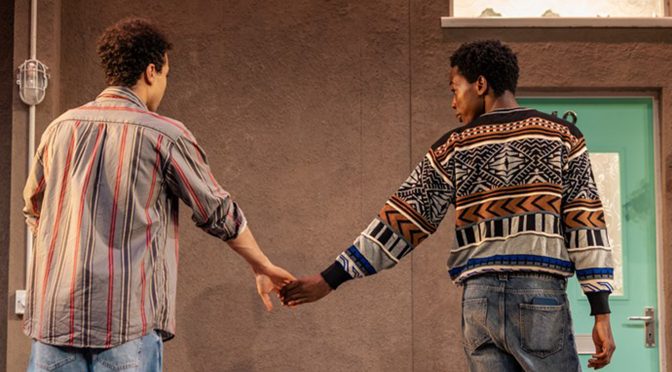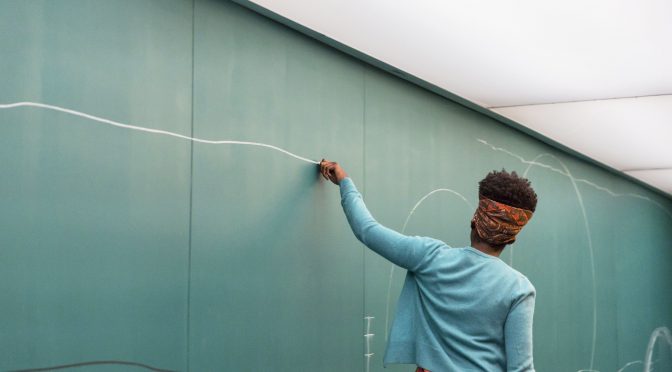There is a reverential air to Anthony Simpson-Pike’s revival of Jonathan Harvey’s coming-of-age story. As a celebration of the play’s 30th anniversary, this much-loved piece is determined to please fans… and it succeeds. The romance between young neighbours Ste and Jamie has more optimism and fun than ever, so relax and enjoy.
Simpson-Pike and his cast provide studied performances that are carefully restrained. Raphael Akuwudike and Rilwan Abiola Owokoniran take the lead roles and make a suitably sweet on-stage couple. That both boys are bullied is in the background, with little time taken over potential trauma. Ste’s home life, in particular, seems glossed over, with little sense of threat from how his violent father might react to his sexuality.
Other roles come close to stealing the show. Shvorne Marks plays Jamie’s mother, Trieve Blackwood-Cambridge her boyfriend, and Scarlett Rayner is Leah, who lives next door. All three have excellent comic skills and appreciate that, while Harvey’s characters are larger than life they are not caricatures. The women, both well-written roles, make every eye roll or insult count. It’s all hugely entertaining.
Since most audience members know most of the jokes, the evening has a nostalgic feel. Of course, it is nice that people are no longer shocked by two schoolboys in love (they are all over Netflix, nowadays). But it is tempting to wonder whether updates might have been made. The characters are normally cast as white, and Simpson-Pike has changed this, but I only spotted one reference to the alteration and surely more might have been done?
Instead, there’s an air of celebration and an admirable emphasis on openness that is cleverly brought to life by Rosie Elnile’s fine design. The communal nature of the housing estate setting would warm a 1960s architect’s heart. Having the boys’ bed come out onto the flat’s balcony is a nice, suggestive, touch. And the production’s finale, where Elnile delivers a neat surprise, reminds us how stirring Beautiful Thing is and ensures everyone leaves the theatre happy.
Until 7 October 2023
www.stratfordeast.com
Photo by The Other Richard


